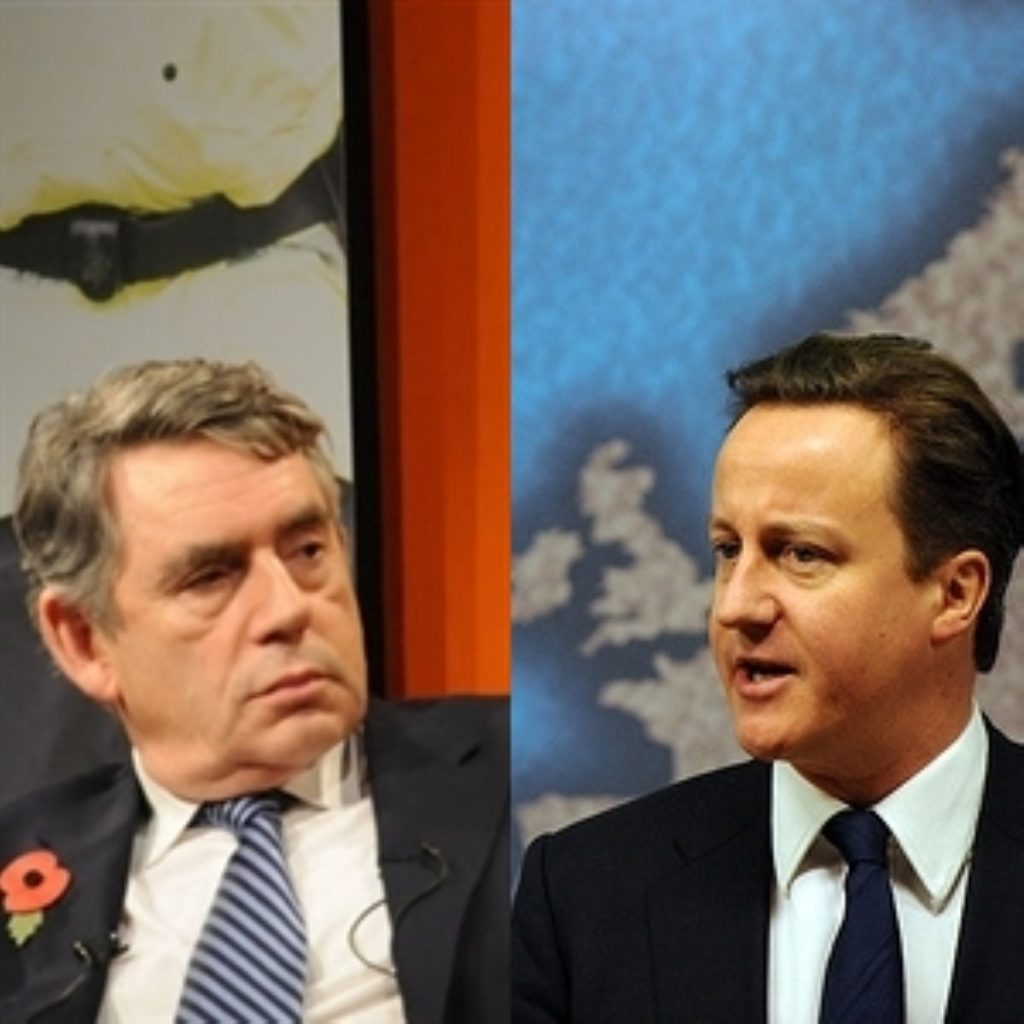PMQs sketch: Brown stumbles, Cameron contradicts
Barely a word mentioned by either party leader stood the test of scrutiny today.
By Ian Dunt
Yesterday, the Commons had one of those marathon sessions. MPs sat until well into the evening to discuss the merits of electoral reform. God knows why. There’s not enough time for it to reach the statute book. One must presume they don’t think about how it looks when they endlessly debate something which will never happen.
But the occasion offered some telling indications of the flaws inherent in the political animal. Labour MPs acted like principle reformers, the William Wilberforce of the 21st Century, confidently demanding the people be consulted on a new, fairer system while fighting back the stuffy opposition of the landed Tories. The realisation must have come to them suddenly, given they’ve been in power 13 years now without a whiff of reform.


The Conservatives acted high minded; one part traditionalists to two parts common sense. Their opposition presumably had nothing to do with the fact that first-past-the-post is by far the most favourable system for their electoral prospects. The opposite could be said for the Liberal Democrats, and indeed, they took the opposite stance.
Hour after hour of party political calculation passed, masquerading as high principle. It takes its toll. And so it was with a heavy heart that we all re-entered the Commons today for a PMQs which would soon become the triumphant climax to yesterday’s meandering affair.
As soon as we got started the hall filled with double standards, mock irritation, half-conceived policy and some terribly, terribly ugly old men and women.
Brown began the hypocrisy by insisting David Cameron “likes personalising politics”. Without any cynicism, or no more than usual anyway, my mind quickly reverted to his yet-to-be-seen interview with Piers Morgan, so heavily briefed to the media, and so heavily prepared by Alastair Campbell, in which the prime minister CRIES. That’s right, HE CRIES. Or his wife introducing him at the Labour party conference. Or those early Labour posters: ‘Not Flash, just Gordon.’
Cameron struck back by insisting Brown’s prepared jokes should be funnier, before suggesting there wasn’t “enough banana on the menu” – a reference to the recent trivial but entertaining revelation that Brown eats seven bananas a day. The decision to mock Brown for giving prepared jokes and then instantly emitting one himself didn’t startle anyone.
“Why didn’t he address the policy issue?” Gordon shouted back, seemingly oblivious to the fact he was about to dodge a question on policy three times in a row. Would Brown use a levy to fund personal social care for the elderly? Brown evaded, rather lamely, by referring Cameron to the white paper (it’s actually a green paper) on the subject. Cameron asked again, and again. But Brown wouldn’t be moved. Plainly it will be funded by a levy, but the prime minister is so caught up between never admitting a tax before an election and offering gifts before an election that he couldn’t allow himself to utter the words.
For minutes at a time he desperately tried to negotiate the attacks emerging from Cameron’s appallingly thin mouth. Behind the Tory leader, his backbenchers were in a sort of Bacchic fury, shuddering with unpleasant rage at Brown’s patent inability to answer the question. They pointed, they screamed, they rocked back and forth, clearly indignant.
Except, of course, that they are actually politicians themselves, so one might imagine they have been in similar situations. Freud once referred to the ‘narcissism of petty differences’, which only goes some way towards explaining it.
Better to remain grounded: a dying parliament, MPs fleeing the sinking ship, debates on policies that never become law and only exist so they can be seen to be debated, praise for policies you berated months ago, U-turns, minor scandal, false passion, a sense of something slowly running itself to the ground. It must be a general election.












